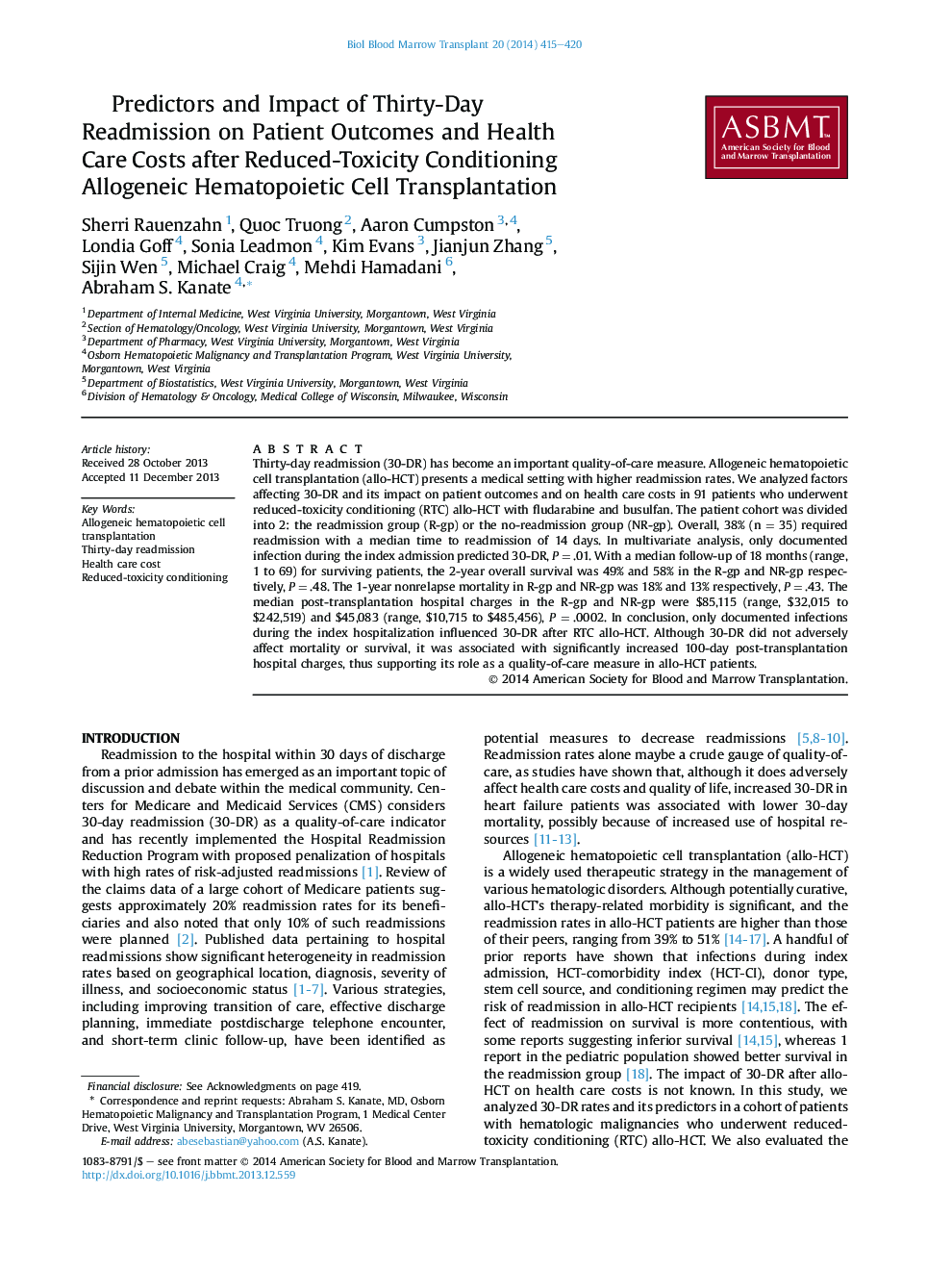| Article ID | Journal | Published Year | Pages | File Type |
|---|---|---|---|---|
| 2102025 | Biology of Blood and Marrow Transplantation | 2014 | 6 Pages |
Thirty-day readmission (30-DR) has become an important quality-of-care measure. Allogeneic hematopoietic cell transplantation (allo-HCT) presents a medical setting with higher readmission rates. We analyzed factors affecting 30-DR and its impact on patient outcomes and on health care costs in 91 patients who underwent reduced-toxicity conditioning (RTC) allo-HCT with fludarabine and busulfan. The patient cohort was divided into 2: the readmission group (R-gp) or the no-readmission group (NR-gp). Overall, 38% (n = 35) required readmission with a median time to readmission of 14 days. In multivariate analysis, only documented infection during the index admission predicted 30-DR, P = .01. With a median follow-up of 18 months (range, 1 to 69) for surviving patients, the 2-year overall survival was 49% and 58% in the R-gp and NR-gp respectively, P = .48. The 1-year nonrelapse mortality in R-gp and NR-gp was 18% and 13% respectively, P = .43. The median post-transplantation hospital charges in the R-gp and NR-gp were $85,115 (range, $32,015 to $242,519) and $45,083 (range, $10,715 to $485,456), P = .0002. In conclusion, only documented infections during the index hospitalization influenced 30-DR after RTC allo-HCT. Although 30-DR did not adversely affect mortality or survival, it was associated with significantly increased 100-day post-transplantation hospital charges, thus supporting its role as a quality-of-care measure in allo-HCT patients.
